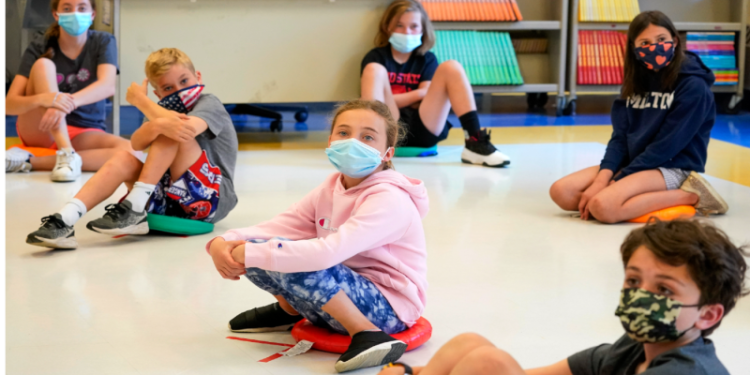
(The Hill) — When President-elect Donald Trump left office in early 2021, the pandemic was at its height. Now he returns as American children and schools are struggling to overcome its lingering impact.
Learning loss and chronic absenteeism are proving to be stubborn problems, and education experts say Trump is currently more focused on culture war issues than raising test scores.
“The first question is, do they want to deal with it at all? Do they have any interest at all in using the power of the U.S. Department of Education to actually improve schools? Or are they only interested in pursuing, you know, an expansion of school choice, a weaponization of Title IX and the expansion of culture war nonsense,” said Morgan Scott Polikoff, a professor of education policy at the University of Southern California.
Despite the fact that schools have been fully open for years now, students have not been able to rebound completely from the closures and remote learning they experienced in 2020 and 2021.
Research from the nonprofit NWEA over the summer showed that students who go into high school are still a full year behind academically. The data showed that test score gaps had widened in almost all grades compared to pre-pandemic numbers by an average of 18 percent in math and 36 percent in reading.
It would take, on average, 4.8 months more of instruction in reading and 4.4 months in math for students to recover their pre-pandemic numbers, NWEA found.
“Things got a lot worse during COVID, and we bounced back partially, but we haven’t bounced back fully on really any measure, except for high school graduation rates […] But the two main outcomes we would normally look at would be the test scores, and those have bounced back partially, college outcomes and educational attainment, generally speaking, and college enrollments are still down from pre-pandemic levels as well,” said Douglas Harris, a professor in economics at Tulane University and the Schlieder Foundation chair in Public Education.
“So partial rebounds, partially good news, but definitely not back to where we would have been,” Harris added.
Trump has not laid out any plans to fix those problems. His education platform instead focuses on conservative priorities including eliminating the federal Department of Education, creating a national school choice program and threatening funding to schools with “woke” policies such as diversity, equity and inclusion measures.
But experts will be pushing for policies to tackle test scores, chronic absenteeism and mental health.
“The Trump administration put out some thoughts on education earlier this week, and they did touch on some things like project-based learning, which I think — there are some probably nonpartisan issues that I think folks could come to agreement on,” said Polikoff.
Trump’s transition team did not respond to The Hill’s request for comment.
After-school programs have shown to be useful for both learning loss and socio-emotional development, with advocates hoping for more funding for such programs.
“We have a responsibility, those of us in the field, to make sure we are educating the new administration now because they haven’t necessarily followed what’s happened in the past four years and the impact after-school programs have made,” said Jodi Grant, executive director of Afterschool Alliance.
One position Trump has made clear is wanting to tackle student behavioral issues since the pandemic and giving teachers more power to discipline their pupils.
Last year, a poll found 70 percent of teachers thought student behavior was worse than in 2019. One-third said students were misbehaving “a lot more.”
“That’s one thing I think that [the Trump administration is] doing that I think does make sense. They need to rethink school discipline,” Harris said. “Teachers don’t really have as much power to control what’s happening in the classroom anymore.”
While the support of the federal government is important, experts emphasize local, state and congressional commitment is needed.
“I think where the feds can really play a useful role, I would say, is in supporting states to do good things, right? So, again, supporting states to expand policies and programs that we know or think work to improve student engagement or drive up attendance. You know, encouraging states to actually monitor how schools and kids are doing and to hold them accountable or provide additional supports as needed. Those are the kinds of roles that I think the feds are well positioned to play,” Polikoff said.
Regardless of what the administration does, Harris thinks learning loss and other issues related to the pandemic will naturally keep recovering.
“You’ve got students aging out to some degree of those problems, because some students graduated, and you’ll have next year’s third graders that […] weren’t even in kindergarten when COVID started, so they won’t be affected by COVID. So, I think there’s going to be a kind of natural bounce-back that has nothing to do with what the federal government does,” Harris said.
“I think what’s going to happen, ironically, is that they’re going to get credit for gains that have nothing to do with their policies,” he added.







